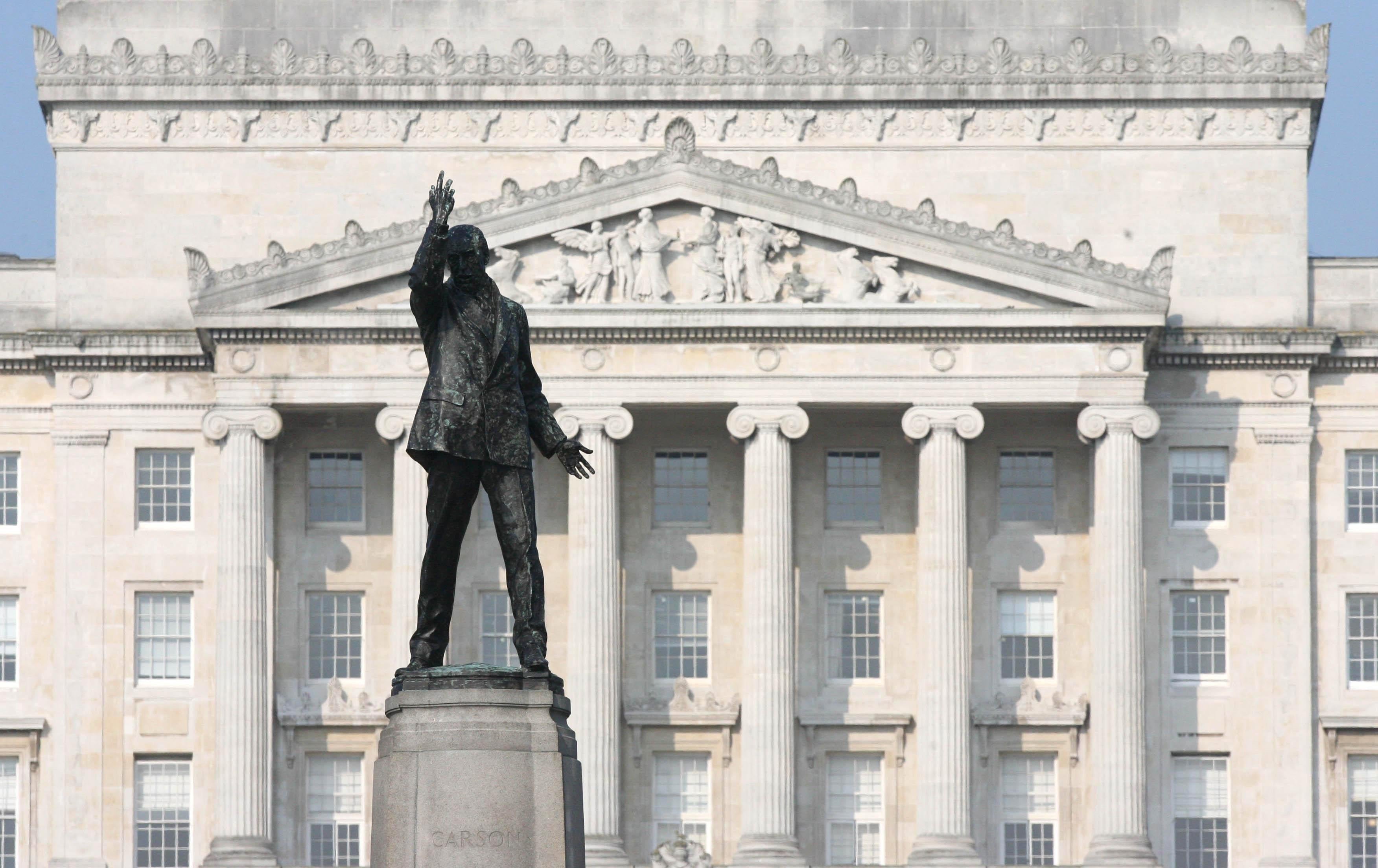Why Liz Truss will be content to let the DUP change ‘the facts on the ground’ over Brexit
The Democratic Unionist Party’s protest against the Northern Ireland protocol gives the EU an issue around how to respond, writes Sean O’Grady


The politics of Northern Ireland’s latest crisis, or latest instalment in a never-ending crisis, are surprisingly straightforward. They are all about the imminent electoral destruction of the Democratic Unionist Party (DUP).
Even if they wanted to, which they don’t, they can no longer operate the Northern Ireland protocol, part of the UK-EU withdrawal agreement – at least, not as the EU wishes it, or, more arguably, as was fully understood and intended when the prime minister, Boris Johnson, signed his “oven-ready deal” back in 2019. Against that, it has to be pointed out, some enterprises have been able to make good use of the province’s unique status as being inside both the UK’s and the EU’s single/internal markets.
Overall, though, the protocol is unpopular, if not unworkable, at the local level. For all sorts of reasons, economic and political, it is loathed by many unionists in Northern Ireland, and it is fair to say it has been disruptive to many businesses and consumers. It’s gone toxic. Hence the NI agriculture minister, Edwin Poots, refusing to undertake the checks required by the protocol, which has the status of international law.
In the consequent NI cabinet crisis, the first minister, Paul Givan, also of the Democratic Unionists, has resigned – meaning the deputy first minister, Michelle O’Neill of Sinn Fein, will also have to go under the conditions of power-sharing. Other ministers can remain in post, but decision-making will be limited. The civil service will assume a caretaker role under the loose supervision of the secretary of state, Brandon Lewis – rather than direct rule by London.
The British government, faced with such resistance and such an intractable problem, is content to watch Belfast change the “facts on the ground”. Liz Truss, in charge of essentially renegotiating Brexit, can use it to garnish her unionist credentials, and to avoid the momentous step of triggering the emergency provisions of Article 16 of the protocol – something that could have led to a low-level trade war with Europe. It’s very convenient, with the party leadership coming into play, and leaves Brussels and Dublin – rather than Truss – with the problem of how to respond.
The DUP can do no other. As they look forward to the elections for the Stormont assembly this May, they face a series of parallel humiliations. It was this dismal prospect that pushed Arlene Foster out as first minister and DUP leader last summer, and then, a matter of 21 days later, her successor (as DUP leader, not first minister), one Edwin Poots, also quit. Givan was appointed as first minister but not as DUP leader, the successor to Poots in that role being Jeffrey Donaldson. The chaos was, and is, entirely proportional to the disasters they face.
The party is likely to come second to Sinn Fein, as the sizeable unionist vote once dominated by Ian Paisley’s DUP is splintered three ways. Sinn Fein would thus have claim to the job of first minister, with the DUP being allocated the post of deputy first minister. Unlike the systems in Westminster, Edinburgh and Cardiff, in Belfast this is more a symbolic problem than one of substance, as nothing gets done unless the first and deputy first ministers agree: it is more of a joint premiership. It is a looming shock to the system, especially as Sinn Fein are likely to do well in the next Irish elections. Sinn Fein could, before long, be in coalition or power-sharing north and south of the border for the first time. Quite a moment.
When Boris Johnson was campaigning for the party leadership and to ditch Theresa May’s Brexit deal (which would have had no economic border between Northern Ireland and Britain), he went to the DUP conference and said that no British premier could accept such a border. He told business people to send any forms to Downing Street. Either he didn’t understand what he was negotiating, or he didn’t care, or he thought it was essential to “get Brexit done”, and could be unpicked and sorted out later. In any case, he risked the union, and left the DUP badly exposed to the more hardline Traditional Unionist Voice group on one side, and the more moderate and older Ulster Unionist Party, plus the non-aligned but pro-power-sharing Alliance Party, on the other flank.
This year marks the centenary of Northern Ireland and partition – not an anniversary that triggers universal joy in the six counties, or indeed anywhere else. The union with Great Britain feels less secure and more attenuated than at any time since 1922. Support for Irish unity runs at relatively high levels, though a majority still want to remain in the UK.
During the Troubles, at least it was politically difficult for a British government to somehow abandon Northern Ireland to its fate, attractive as the idea was to some British politicians. The Good Friday Agreement in 1998 settled the disputed border issue in British and Irish law with appropriate changes to constitutions, and by popular assent via dual referendums. The power-sharing government led by the bizarre partnership of the anti-papist Paisley and ex-IRA man Martin McGuinness was the high point of peaceful stability within the UK and EU, with seamless north-south borders. The new arrangement was symbolised when McGuiness shook hands with the Queen in 2012.
Then came Brexit. Northern Ireland voted Remain; its largest party, the DUP, campaigned for Leave; and no one could decide where to put the UK-EU western border, or how to operate it. Poots’s move would hardly resolve the problem – but neither was it he who created it.



Join our commenting forum
Join thought-provoking conversations, follow other Independent readers and see their replies
Comments